I.
Two days ago, I arrived back, late at night, from a week-long trip to the United Kingdom. It was a business trip, a thing I cannot help but remark as a bit strange to all the people I’ve been in my life.
“Business” comes from an old English word, bisgian, meaning to attend to, to be concerned with, or to care for. Bisgian has a peculiar history: most Old English words have Germanic or Nordic roots due to the settlement patterns of the Saxons, the Angles, and the Jutes (each of which spoke a variant of what later became German), and thus appear again in later German. For instance, the word “speak” in Old English was specan; it appears again in German as sprechen, meaning both words had a much older shared origin.
But bisgian doesn’t follow this pattern. When this happens for a word, it’s fair to assume it was created to describe a unique idea, activity, or thing for which there was no previous word. In other words, there was suddenly a need to make a sound for something that no previous sound applied to.
This means the concept of being busy probably came about sometime after the Germanic peoples who became the Jutes, Saxons, and Angles split off from the other Teutonic tribes but before they settled Britain. We can assume this because there’s an Old Dutch and Low German cognate.
This map helps explain what happened here:
The groups in yellow (Angles, Jutes, and Saxons) would have used some form of bisgian, and those who were part of the orange (Frankish) group who didn’t move (they became the Low German and Dutch speakers) also used the word.
The reason why etymology fascinates me so much is we can then make a few conjectures about relationship of the word and the people who first used it. “Business” is now inextricably linked to capitalism (despite predating it by at least a thousand years), and capitalism developed in the land where the people who came up with the concept of “being busy” settled. So, it’s possible there was some shared experience or cosmological concept of those peoples which carried over into the birth of capitalism.
We can see this in the formation of Protestant and especially Puritan moralism around work. Consider the proverb “idle hands are the devil’s playground,” itself an enforced (mis)translation of an actual Proverb from the Bible. Busy-ness and business were both elevated to marks of holiness before the Christian god and proof of devotion to him, despite actually being a cultural concept unique to a localized Germanic splinter-group.
In that context, it’s a bit easier for me to countenance the fact that I was on a business trip, though it will still always be quite strange for me to hear those words uttered from my mouth. Rather, though, I prefer to think of it as a kind of pilgrimage where the destinations, conversations, and rituals were all devoted to attending to, being concerned with, and caring for important parts of my existence.
Also: I needed to be busy. Things are a bit upside-down in my life here in Luxembourg. I’m not in the house where I’ve lived the last five and a half years. I don’t have my garden, nor my office, nor easy access to the usual things or places upon which I build my world. A significant part of me suspects this to be a temporary matter, though I can’t really be quite sure of this.
But while one part of my life feels quite unstable, uncertain, and without any clear sense, other parts become more solid, certain, and meaningful, even more so because of this trip.
II. “Gazing calmly at the passing landscape on a long train ride”
In A People’s Guide to Tarot, I wrote this about the Six of Swords, a card that appeared a few times in readings before the journey:
As with all sixes, this card is always quite positive in a reading. It’s pointing to a moment of resolution and reflection, like a passenger gazing calmly at the passing landscape on a long train ride. If you’re in a moment of transition right now and are uncertain of the future, trust that the place you’re going will make more sense when you get there.
Very often in present and future positions, it’s a call to take a journey, or to seek out other ways to experience life differently.
I especially needed to be “a passenger gazing calmly at the passing landscape on a long train ride,” and that’s what happened. To get to the U.K., I took a series of trains, starting from the place I currently reside, into the city of Luxembourg, on to the city of Metz, then to Paris, under the channel to London, and ending in the home of my friend and business partner, Oliver Rathbone, in Sussex.
It was quite a long journey, the length of which thrilled me. The journey also got me to thinking a bit about rituals of transit and the strange meetings you have only while traveling. Having (only quite recently) found myself in relation with Hermes, god of both travel and commerce, I imagined what a world might be like where devotees of a travel god openly practiced cultus to him, and then tried to manifest my own part of that world.
Near the beginning of the journey, part of the train ride was replaced with a chaotic and cramped bus. I found a seat next to a confused-looking younger man who panicked at my French. “Ah, I’m sorry mate,” he’d replied. “I don’t know any français.”
I laughed, amused that anyone might have mistaken my American-accented French as actual French, and got to talking to him in English. In the royal Navy, he told me, on his first trip to Europe, with barely any cellphone battery and no clear idea how to get where he’s going. So, of course, I helped him, gave him advice and directions (he was going also to Metz, but on a different train), and warned him about the absurd prices of Luxembourg. Later, by complete “chance,” I ran into him again on a street in Metz despite his later arrival and different trajectory, a conversation then resulting in his offer of a place for me to stay in Leeds whenever I’d like.
These kinds of interactions continued throughout the journey. I helped at least three people carry their luggage up stairs and haul them into onboard storage areas, and had a long conversation with a woman on the Eurostar train to London who wanted to ask me questions about getting into publishing. This last interaction was anyway what the “business” part of the trip was about, and because I’d not broached the subject myself (she’d seen me editing a manuscript on my laptop), it felt quite significant that it was my final conversation before arriving at my destination.
If you’ve not done the Eurostar trains, I do quite recommend them. The last time I traveled to the UK through the channel tunnel (sorry, I don’t like the sound of “chunnel”), it was on a twice-weekly bus run by a small Czech student travel agency from Prague to London with a stop in Luxembourg. While much cheaper, I don’t recommend any sort of bus seat (despite the much larger sizes in that bus) for ten hours.
The Eurostar is just like any other high-speed train in Europe. Even the second class (which I took) is more than acceptable, the ride is pleasant, and though the long border check to enter in Paris is of course alienating (they check your passport thrice, your boarding pass twice, and the security process is almost identical to planes), it’s really rather great.
I arrived in St. Pancras with an hour and a half to spare before heading off to Lewes, and there got almost physically pulled into an Indian restaurant by its owner for a decent enough meal at more than the advertised price. But I didn’t care too much about the aggression or the cost, because I’d exited the station to a large and persistent rainbow.
I really fucking needed that rainbow, you should know. Try as I might, my situation at “home” weighed really heavily on me. The prismatic arc of color over King’s Cross was enough to wake me from the gravity of despair and remind me I was somewhere else.
I arrived in Sussex a little more than 12 hours after I’d started the journey that morning. My host’s family dog, aptly named Stanley, immediately recognized and welcomed me, and after a short conversation I finally slept.
I woke the next morning quite early, and after coffee and toast began discussing publishing “business” with Oliver. I can’t begin to describe how fortunate I feel equally for our friendship and business relationship both. He’s a wise, kind, and crafty fellow, full of amusing and fascinating stories. And also, because of him, the publishing work I’d done for over ten years continues in a much more secure and efficient way.
Later that day, I took a train to Brighton so to meet an author, Valerie Sinason, whose latest fiction manuscript I’ve been editing. It’s called Hotel Mirabelle and the Wonderful Wheelchair Company, a delightful novel about a hotel in a dying seaside town that re-establishes itself as a premier vacation spot for people with physical and mental disabilities. Valerie, too, is quite a delight, and I was particularly thrilled to hear her stories about Jewish communists and their varied feelings about Russia as liberator and oppressor both.
After our meeting and before meeting Oliver and his daughter for dinner, I walked along the shoreline of Brighton, my second time there. The first time I was there was more than 20 years ago, a short trip during what might have otherwise been an oppressively long eight-hour layover at Gatwick airport. That time, I’d napped on the beach with my then-partner, preparing ourselves both for a reluctant return to the United States after three months of backpacking in France and Germany.
I couldn’t help but recall that first time and the feelings I’d felt then. It’d felt like my heart had been ripped out and scattered across Europe, and some part of me felt the same way this second time, too. The resonance of those two moments, however, was enough to remind me that I’d survived that last time quite well and certainly will again.
The next day, Friday, I returned to London with Oliver. We had lunch with his wife, and then stayed that night in a flat near Exmouth Market in London. More conversations — a bit less business and perhaps a bit too much my home situation — and then we woke the next day to what I knew would be my favorite moment of this trip.
III. Old friends meeting for the first time
If you’ve read me long enough or known me or my former publisher for a long time, you’ll know that I’ve worked with a rather fantastic co-editor,
.The first iteration of what became Sul Books was called Gods&Radicals Press. We started in 2014 just as an online journal and then later as a book publisher. At that time, it was a non-profit in the United States, and essays for our online journal were regularly getting between 10,000 and 20,000 views. That was before Facebook and Twitter had implemented new algorithmic filtering mechanisms to throttle external links in order to force journals and other sites to purchase advertisements.
Because of our popularity and how easy it was to publicize our work, we had a reliable revenue stream, and I couldn’t keep up with all the work on my own. It was sometime in 2017 that I put out a call on social media for a site editor position, and that’s how I met Mirna.
Back then, I had no idea how things would change, nor did I ever guess how important the decision to hire Mirna would be. In the following years, as every social media platform began making it harder and harder for us to publicize our work, and especially as the height of the woke cancellations ripped apart every independent leftist organization, Mirna managed to keep Gods&Radicals alive when I couldn’t find the energy for it any longer.
I’ve never spoken about this publicly, but not long after I moved to Luxembourg from France, there was a really rough time when Gods&Radicals almost stopped existing. The non-profit board had mostly abandoned it, there was no longer enough funding for my salary, and I needed to form a new organization for it so it could continue. That was RITONA, named for the Treveri Celtic tribe’s goddess of river crossings.
But in the midst of this, some newer writers and a few older ones instead wanted to turn the publisher into more of a worker’s collective. I wasn’t opposed to this idea, actually, but I soon realized that I’d regardless be doing most of the publishing work without pay anyway.
That was a really messy time, and I wasn’t my best self during this, but Mirna stuck with me anyway. Several writers and our book distribution person left, and we never got the funding to pay me even a small stipend. Fortunately, there was enough to pay Mirna, and thanks to my now four thousand readers, my Substack writing could make up the difference.
Sul Books exists for a lot of reasons. Oliver’s belief and trust in my publishing ability are certainly a big part of that. Equally, Mirna’s fierceness in keeping Gods&Radicals Press and RITONA going — no matter how crazy or hard things got — is why there was anything to combine with Oliver’s Sphinx imprint in the first place.
And here’s a wild thing. Mirna and I had worked together for eight years without ever once meeting in person … until this trip.
IV. We survive everything
After quite a few hours — but not nearly enough — spent with Mirna, I made myself dinner and went for an evening walk around London.
I’ve always loved cities, despite how difficult they are to live in. For the last five and a half years, I’ve dwelt in a tiny village too far from the city things that make life interesting. No coffee shops, no bookstores, no places to watch throngs of people and dream.
I’ve only recently started admitting to others how excruciatingly lonely that’s felt. Part of that’s the place where I’ve lived, and part of that’s on me and especially my stubborn refusal to learn to drive. A small village is great if you can go other places when you’d like, but without a car, I’ve been limited to reliance on Luxembourg’s increasingly free-yet-utterly-unreliable public transit system.
So, wandering the streets of a city like London at night is a pure pleasure. I saw several foxes, ragged from street life, and wondered aloud to them that maybe they and I should just have switched places. They could join the foxes I watch trot happily across the hills in Luxembourg, and I could have decent coffee.
Besides some editing work, I did nothing of note the next day until early evening. That’s when I got to meet up again with my ever-witty and ever-kind friend,
.Nina, you might already know, is someone that some really overly-serious people think shouldn’t ever be allowed to do anything ever. I’ve known plenty of “cancelled” people in my life, but of them all, Nina’s probably had it the worst. Despite all that — or maybe actually because of all that — Nina’s soul is utterly beautiful, and I’m honored to call her my friend.
The first time we met, it was just before the release event for my ill-fated book, Here Be Monsters. It was actually my editor at Repeater Books, Carl Neville, who’d invited her to the event and also to tea before (they’re both teetotalers). Then, we met again last year, just after I’d met with Watkins Media’s deputy editor to find out what could be done about the internal sabotage of my book. And this time, we drank mochas and shared a brownie and laughed about all the silly people and silly things in life (like our dark druid conspiracy), and how, no matter what, we survive everything.
You’ll note I’ve not written much lately. It’s not just because my life situation has been unstable, as much as that could probably suffice as an excuse. Rather, I’ve had quite a series of existential crises, including realizing how fucked the left had really gotten (and how), understanding how easily I can be taken in by dishonest people, and also some really deep ancestral trauma I’ll write about sometime soon.
It’s actually because of Nina that I’m writing this at all, though she might not realize it. We talked about how difficult it is — despite being writers — to write, and vowed we’d help inspire each other to write more often. There’s an essay I’ll be writing soon that was her idea, and I think you’ll really like it. But this essay also exists because she reminded me that I’m a writer, and that I should write because that’s what writers do. So you’ve her to thank for this, as do I.
V. Frater Mysticus
On Monday, I walked to King’s Cross station to meet a friend who’s incredibly difficult to describe. “Friend” doesn’t feel right. “Brother” gets a bit closer to it, but that’s still not right.
It’s an incredibly rare thing to meet another person who understands your heart and likes the same things as you do. People like that usually become lovers or partners. But rarer still is meeting someone whose understanding of magic and perception of things others don’t normally see is so close to yours that you feel like you are always talking about the same thing. The Irish idea of the Anam Cara fits pretty well here, and so does the alchemical idea of the Frater Mysticus, but so, too, does the generic yet utterly meaningful British English idea of “mate.”
All of that describes Dan, who came down to London for 24 hours just to make sure we got to see each other this trip. We walked for hours, talked, ate, and drank in the same strange dream space that arises each time we’re in proximity to each other. Especially, walking with him through the temple financial district of London — which stood in-between his hotel and the flat where I was staying — was like treading through the ruins of a fallen civilization by means of astral projection. Sure, we knew it as all there, but only “there” only as a relic or a museum exhibition, a realm closed off to external interaction because it died aeons ago.
The next morning, Dan was kind enough to help me with what I’d initially feared to be the most cumbersome and difficult part of the journey. Through a slight turn of misfortune, there were about fifty books by John Michael Greer originally slated for sale at an event that never made it to their destination. Fifty books isn’t a small amount, and I hated the idea of seeing them destroyed or abandoned.
More than a decade ago, long before we had any real distribution for Gods&Radicals titles, I used to bring copies of our first few titles to bookstores directly and try to get them to sell them on consignment. I’m far from a salesperson, and I find cold calls like this to be soul-crushing, but because at least Dan would be coming with me, I figured I could try to do this again.
That’s how this happened:
That’s Carl Nordblom, the manager of Watkins Books, standing next to the books Watkins bought from us. Gods love him, he took almost all of them, including some other titles (including A People’s Guide to Tarot, A Demonology of Desire, and True to the Earth) that you can now purchase there. Carl’s great, you should know, an utter delight to talk with and obviously deeply intelligent.
VI. Things left after the left
Also, Watkins has another employee really worth noting (and stopping by to visit). Angie Speaks, a fellow successful refugee from the cultural wars, now works there. Unfortunately, I didn’t catch a photo of us, but that’s probably for the better. She’s gorgeously thriving, and since by then I was looking rather ragged, I’d probably have shown up merely as an undecipherable splotch next to her.
Seeing her again was a delight, and too short. I’m particularly excited that she’s got a book coming out with
in November which I’ll certainly read and review for you here.Which, on the subject of Repeater, it turns out there was a small boycott protest in front of Watkins Books the Saturday before I stopped by. I’ve said before and will absolutely say it again and again: the boycott is not only misguided, but it’s a deeply cynical attempt by the same people who sabotaged my book’s release (and also attempted to force Repeater to cancel Angie’s book contract) to use the moral outrage about Palestine towards their own ends. Though I never wish anyone ill, the sorts of people who manipulate real crises towards their own ends are narcissists, and they’re exactly why the left is so irreparably fucked.
After my stop in Watkins, Dan departed for a train, and I stopped by Treadwell’s Books and Atlantis Books, both of which also agreed to start carrying some Sul Books titles. I’d had to “borrow” back a few of them from Carl since I’d not had enough for all three stores.
The rest of that day went by quite fast. I’d arranged to meet with a dear friend of mine, Lia, at a Chinese restaurant near Victoria Station. As you might have heard, there was an Underground strike. It was an hour walk from where I was staying, and my feet were quite grumpy with me after so much walking with Dan, so I grabbed a bus for the journey. Hilariously, though, I got to experience a strange phenomenon I’d encountered a few previous times in London: just after a few stops, the bus just decided to stop and force everyone out. So I instead walked the rest of the way, as fast as possible to not keep Lia waiting.
Lia is a lovely human with a story I hope she one day will tell. She’s an Italian autonomist — like Silvia Federici — who needed to flee during the Years of Lead and ended up in a London squat. As with many other older leftists I’ve had the privilege of meeting, each of whom experienced actual police repression and really-existing fascism, she’s got very little patience with the “left” as we know it now, and especially the identitarianism of social justice. That being said, she’s got much more fire and passion in her than any social justice activist you’ll ever meet, and each conversation I have with her leaves me fiercely inspired.
My last day in London was quite short and fast. By then; I was exhausted and sad to leave, but both of these feelings ebbed immediately when Mirna agreed to meet me for coffee while I waited for my train.
I then traveled back, another 12 hours from departure to final arrival, and am here in Luxembourg again.
I don’t know what’s next for me, except I know I’ll be writing a lot more. I’ve a long list of new ideas for Sul Books, and even more optimism than I had before about its future.
It was a business trip in the oldest root meaning of business. I had something to attend to, to be concerned for, and to care about: friends, a publisher, and most of all, me.



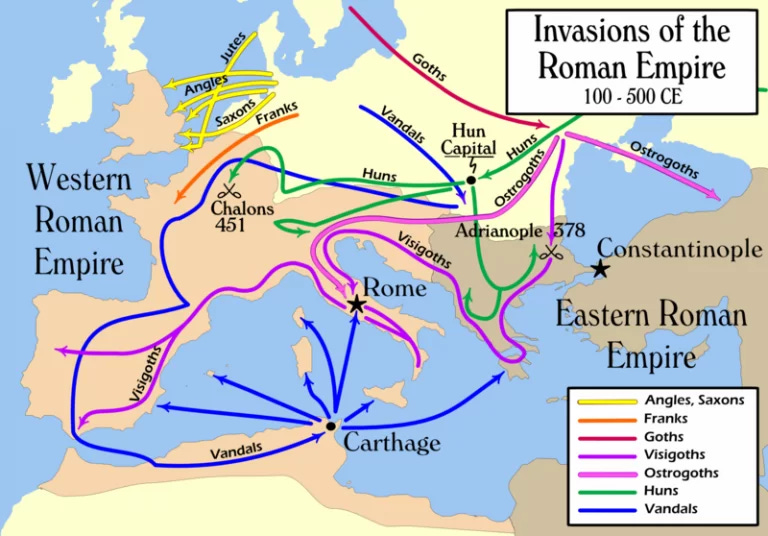
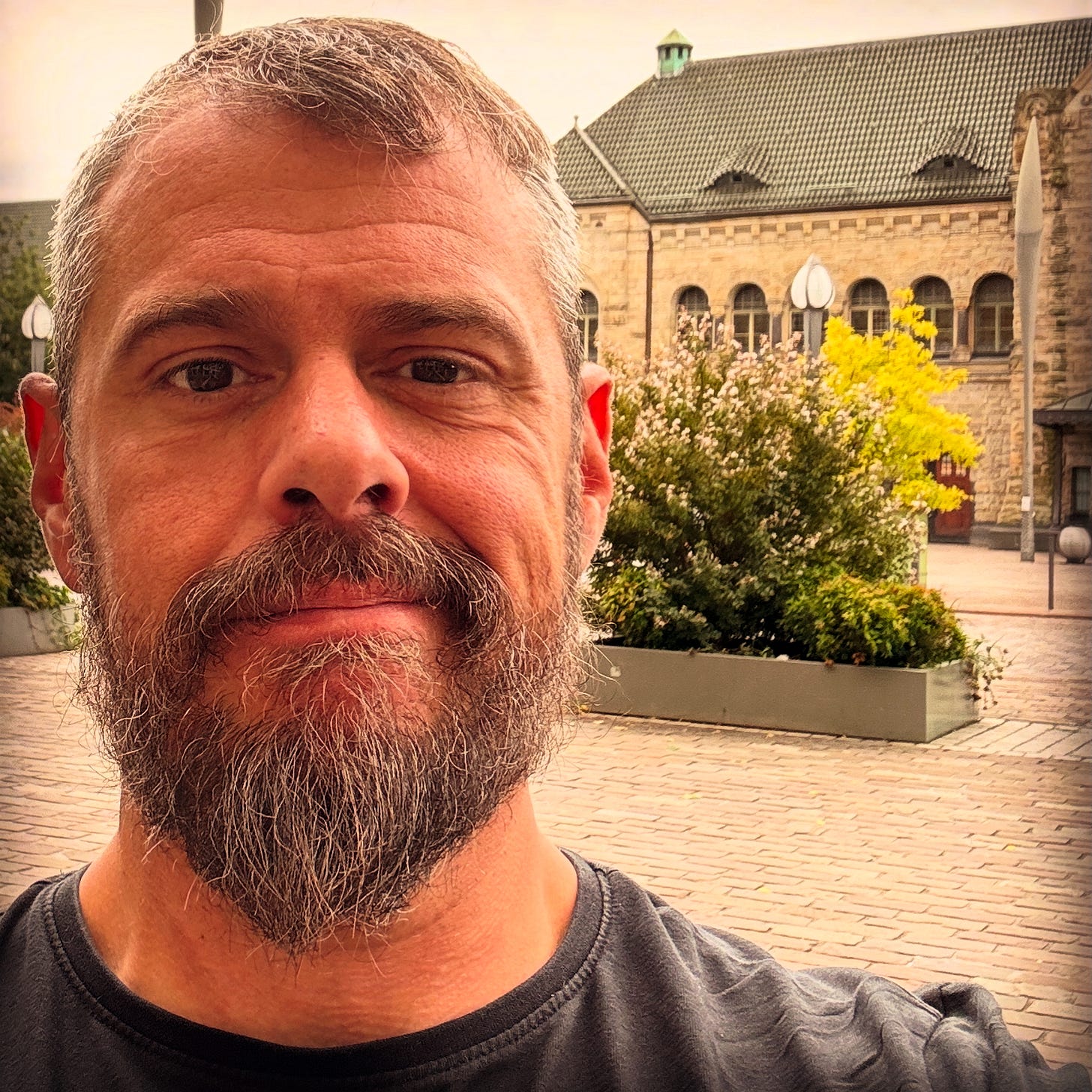

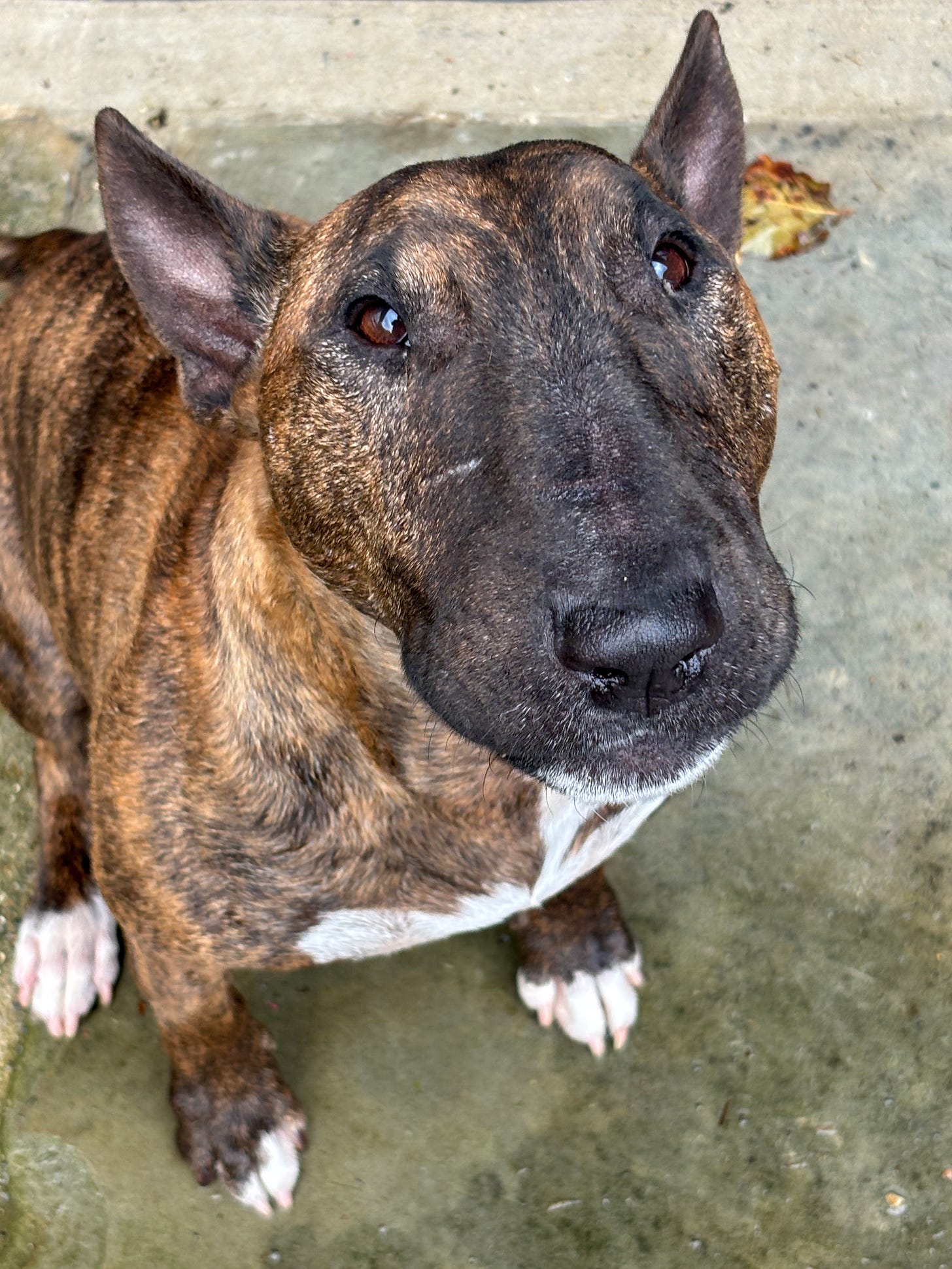
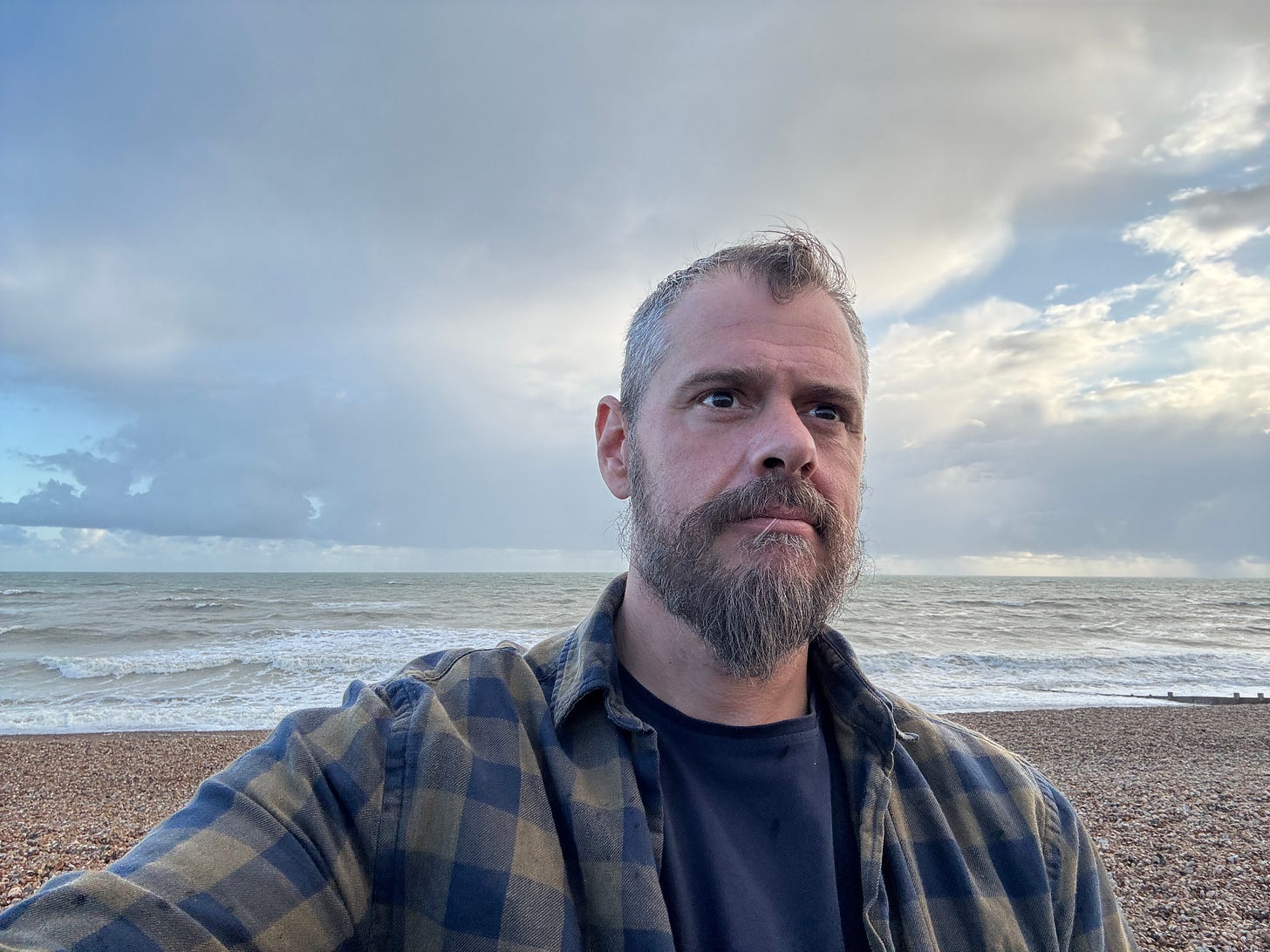
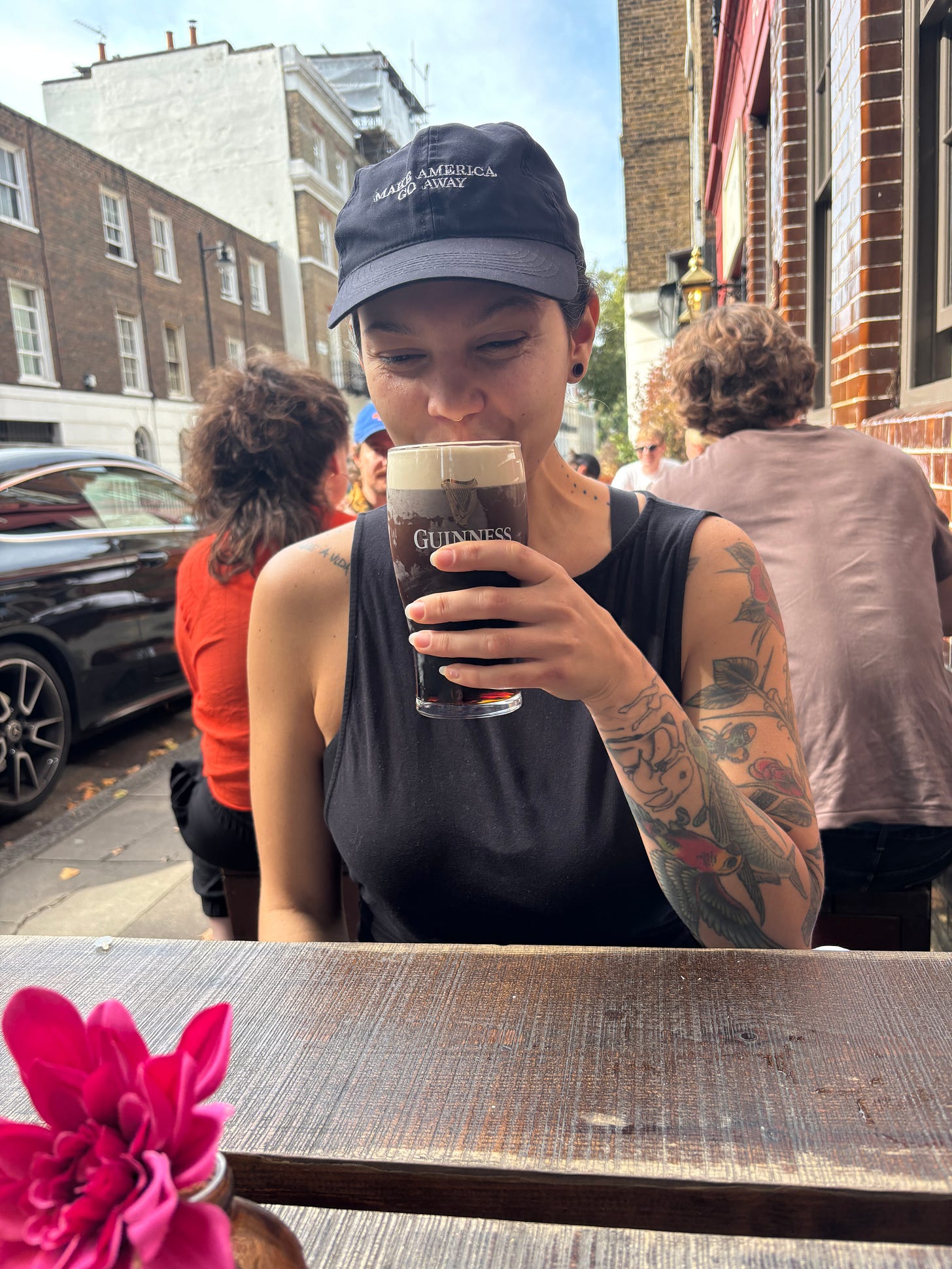
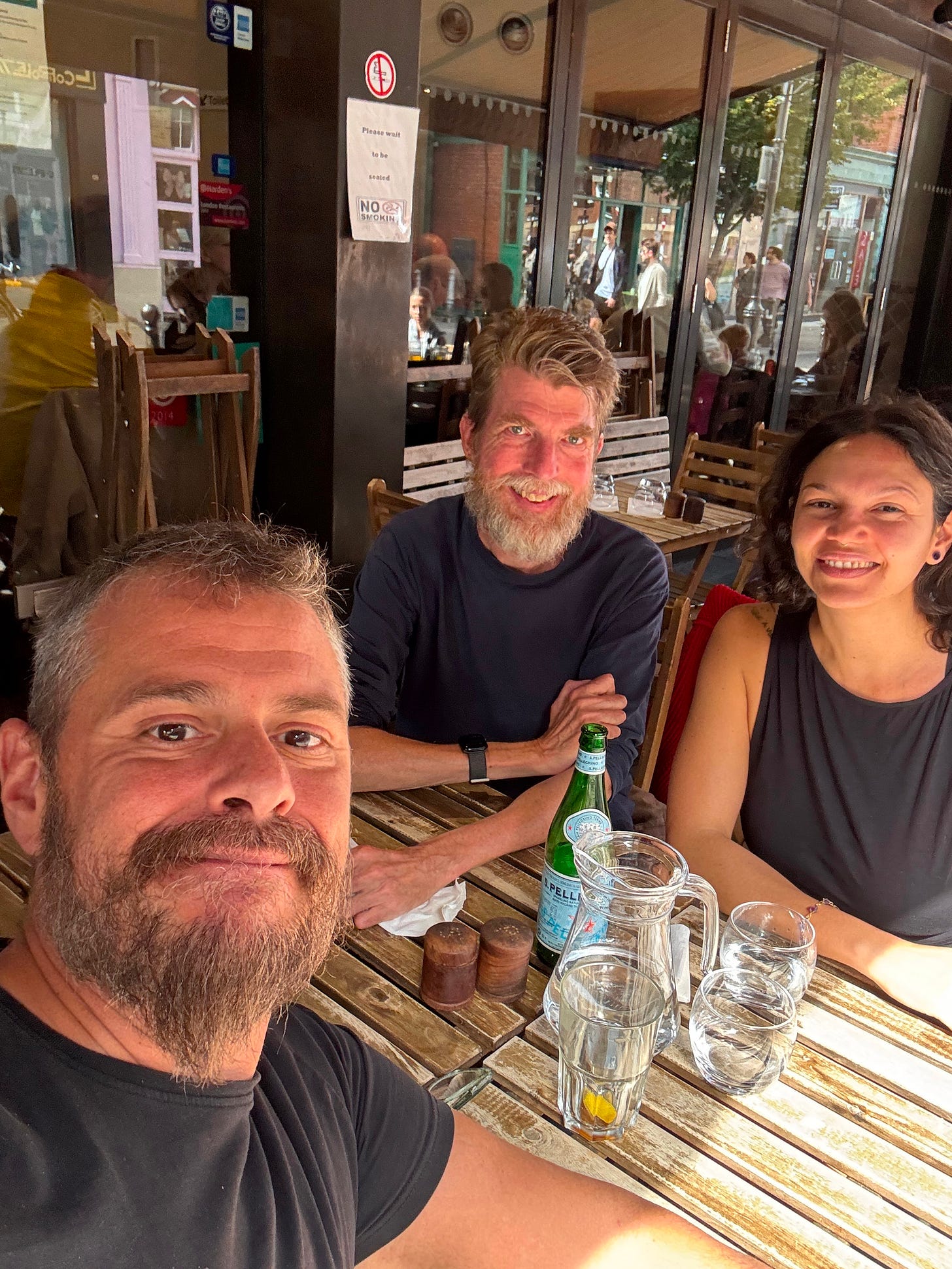
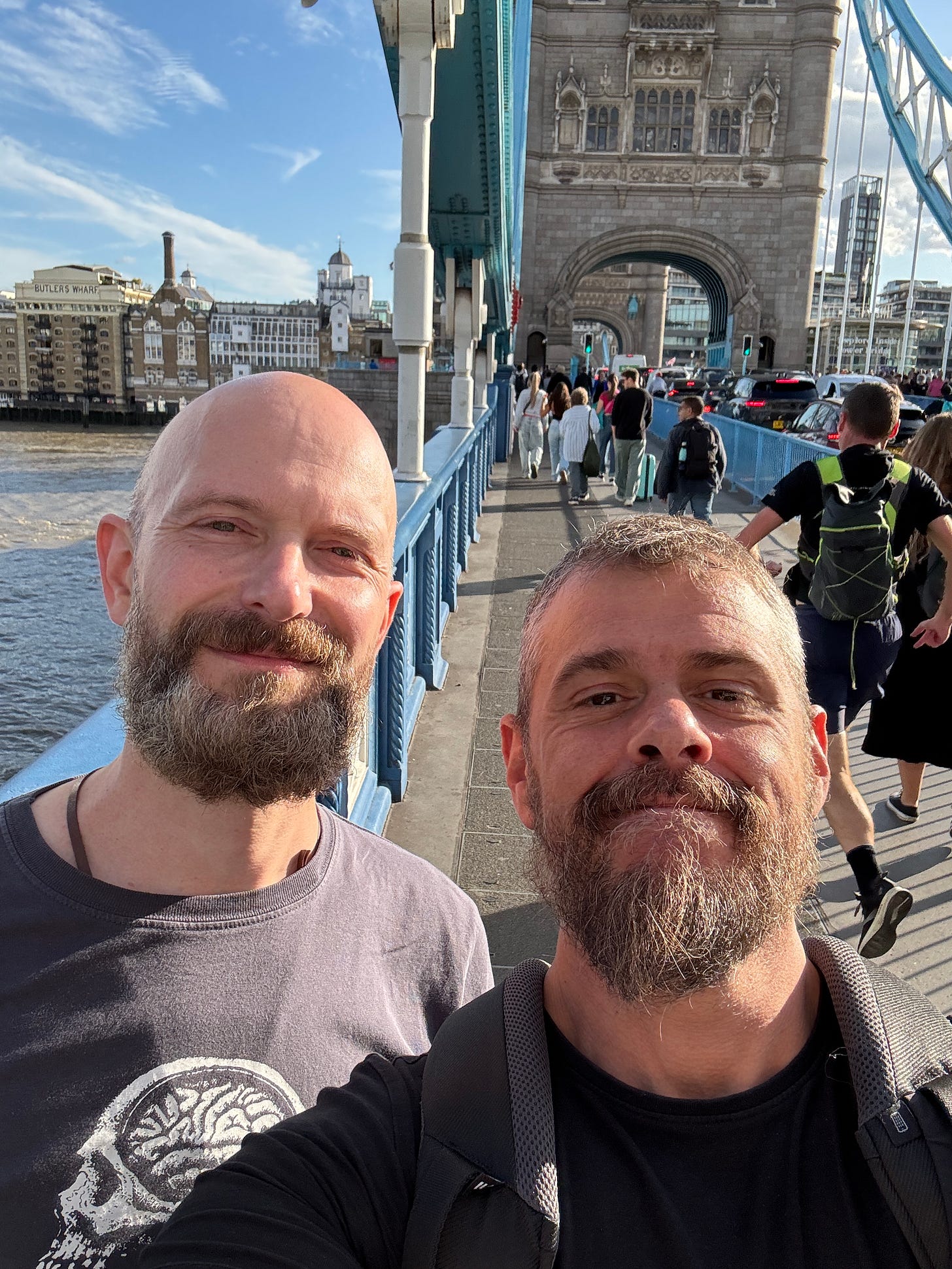
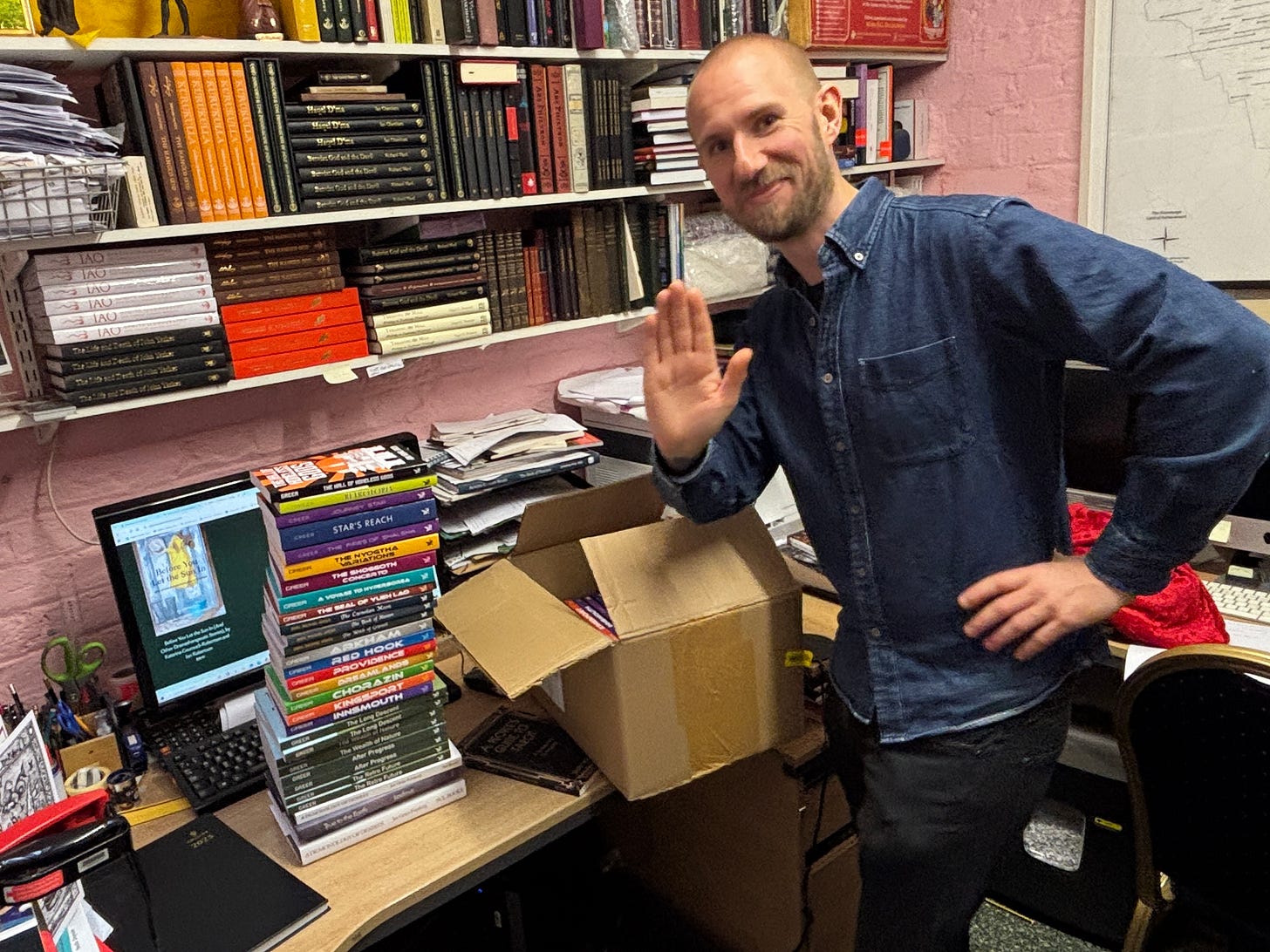
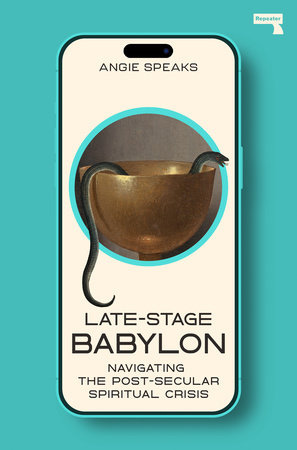
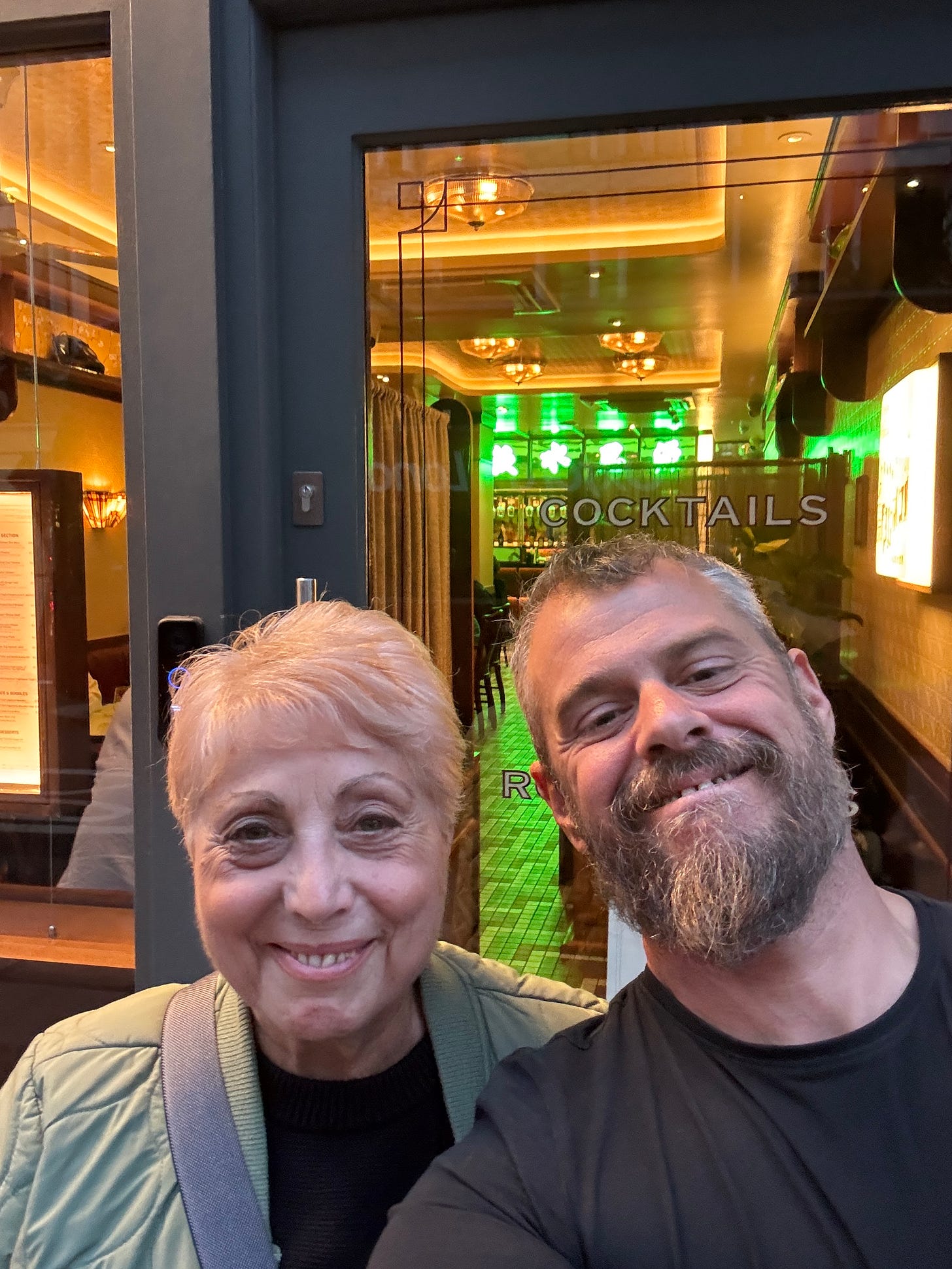
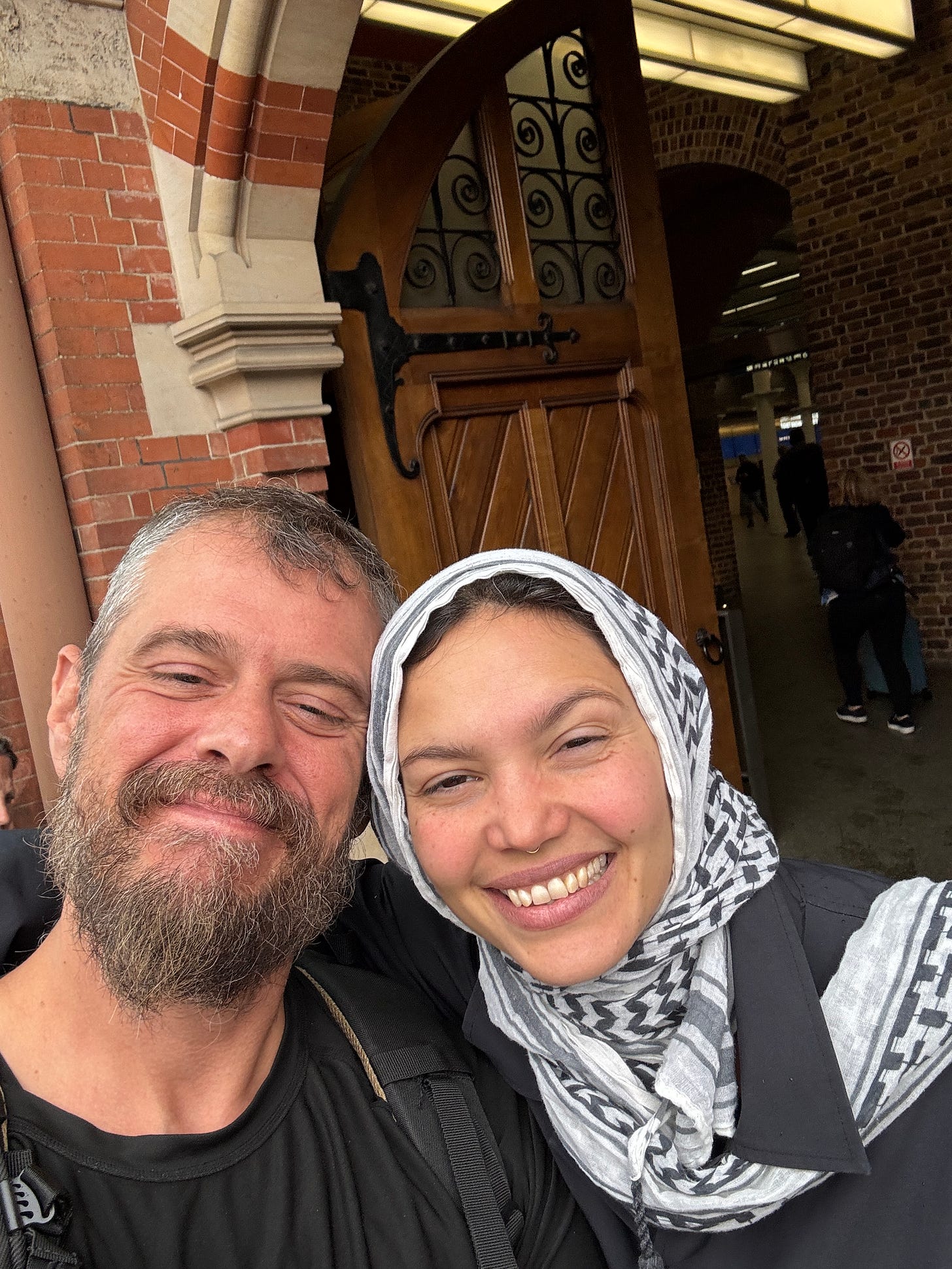
This is great!
I have missed reading your writing and certainly look forward to more of your well thought out essays and updates. You have a great talent and I always learn something new and intriguing. I hope things work out on the home front or push you onto a more beneficial path in the long run.